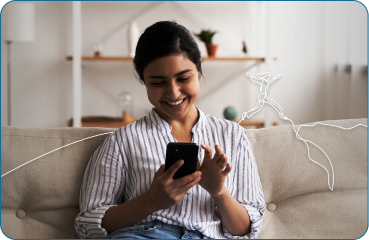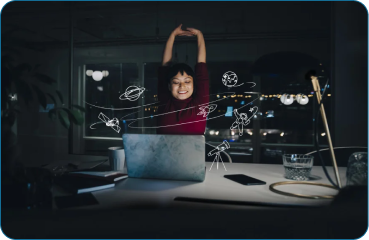.png?width=189&height=505&name=Vector%20(2).png)
Online Safety and New Technologies – Marie Claire and Daily Mail
SureCloud was recently featured in Marie Claire and the Daily Mail to discuss online safety. Our Cybersecurity experts discussed smart devices and the information they collect, as well as the risk of sharing information online.

Smart devices – how smart are they?
Marie Claire asked us about the safety of smart devices and new security measures. The article “Alexa, are you spying on me?” details the capabilities and vulnerabilities of voice-activated smart devices and using voice recognition as a safety measure. Back in May, a BBC report that found these measures could be compromised by someone with a similar voice pattern, such as a twin of an account holder.
SureCloud Cybersecurity Practice Director Luke Potter recommends two-factor authentication methods, such as adding a password or pin to voice recognition, to address these safety concerns. Luke told Marie Claire, “It’s about adding layers of security and reviewing your tech use. If you’re worried about your smart speaker, you can always find out what’s being stored on it. Likewise, check your phone settings. Every app you download now asks if it can access your location, camera or microphone. You can go to settings and individually check which apps you want switched off.”

We are spending more time online – how vulnerable are you?
As technology evolves and we spend more time online, questions about our online safety are becoming more prevalent. A Daily Mail journalist, Antonia Hoyle, asked Luke to find out just how vulnerable she was to fraud. Using only her name, in a matter of hours Luke found sensitive information including her bank account password and mobile number.
How was this possible?
What Antonia didn’t know was that some of her passwords had been stolen by hackers over the years and placed on a criminal-run website. Her LinkedIn password was also compromised because it was shared with her emails and bank accounts.
Sharing passwords is bad practice. The BBC reported that in 2016, there were 6 million cybercrimes in Britain – more than any type of crime in the real world.
Sharing seemingly innocent information online helps hackers with intelligence gathering. “This allows fraudsters to build up enough of a profile of your consumer habits to use for a targeted attack,” says Luke. “Anyone could call you up pretending to be from your bank and provide the kind of detail about you that would convince you they were genuine. This is how people fall victim to fraud. They think there is no way a stranger could have that knowledge of them without being in a position of authority.”
Think your social media profiles are safe from strangers? Think again.
Despite Antonia’s private Facebook settings, Luke found out her children’s names, where she’d been on holiday, even her daily routine. And as Luke points out, privacy settings are often set on a post-by-post basis, and users could change them without realizing.
Staying safe online requires savvy-thinking. It’s using unique passwords for each account, checking security settings and thinking twice before you post certain photographs. Following these articles, Luke has compiled a list of seven steps for better online safety, which you can read here.
Or, if you want to read more about sharing passwords click here.
.png?width=265&height=582&name=Vector%20(3).png)









.png?width=286&height=582&name=Vector%20(7).png)


 Copy link
Copy link